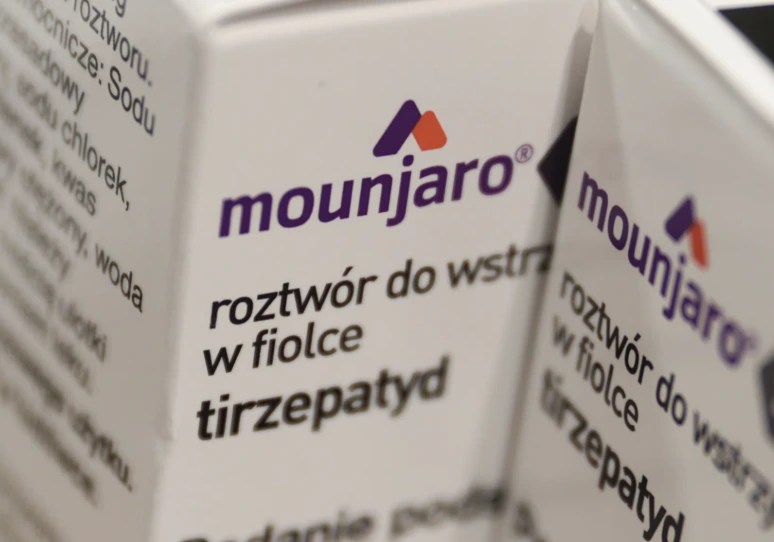
What is a DPP-4 Inhibitor and Its Role in Weight Loss?
DPP-4 inhibitors, short for dipeptidyl peptidase-4 inhibitors, are a class of medications primarily used to treat type 2 diabetes. These drugs work by regulating blood sugar levels, but they have also drawn attention for their potential role in weight management. While DPP-4 inhibitors are not explicitly designed for weight loss, their effects on glucose metabolism and appetite regulation may indirectly contribute to weight management in certain individuals.
How Do DPP-4 Inhibitors Work?
DPP-4 inhibitors function by targeting the dipeptidyl peptidase-4 enzyme, which breaks down two important hormones:
- GLP-1 (glucagon-like peptide-1)
- GIP (glucose-dependent insulinotropic polypeptide)
These hormones, collectively called incretins, play a vital role in controlling blood sugar levels by:
- Stimulating insulin production when blood sugar levels rise.
- Suppressing glucagon secretion (a hormone that increases blood sugar).
By inhibiting the DPP-4 enzyme, these medications prolong the activity of incretin hormones, leading to better blood sugar regulation.
The Connection Between DPP-4 Inhibitors and Weight Loss
Although DPP-4 inhibitors are not marketed as weight loss drugs, their mechanisms may offer some weight-related benefits:
1. Appetite Regulation
- Enhanced incretin activity, particularly GLP-1, can promote feelings of satiety (fullness). This may reduce calorie intake and help control overeating.
2. Improved Glucose Metabolism
- Better blood sugar control can prevent spikes and crashes, which are often associated with cravings for high-calorie, sugary foods.
3. Reduced Fat Storage
- By improving insulin sensitivity, DPP-4 inhibitors may reduce the body’s tendency to store excess glucose as fat.
However, it is important to note that the weight loss effects of DPP-4 inhibitors are generally mild compared to other medications, such as GLP-1 receptor agonists (e.g., semaglutide).
Commonly Used DPP-4 Inhibitors
DPP-4 inhibitors are widely prescribed for diabetes management, and some of the most commonly used drugs in this class include:
- Sitagliptin (Januvia)
- Saxagliptin (Onglyza)
- Linagliptin (Tradjenta)
- Alogliptin (Nesina)
These medications are typically taken orally once a day and are often combined with other diabetes treatments.
Studies on DPP-4 Inhibitors and Weight Loss
Research on the weight loss effects of DPP-4 inhibitors has produced mixed results:
- Mild Weight Reduction: Some studies suggest that DPP-4 inhibitors may help prevent weight gain or lead to modest weight loss, especially in individuals with type 2 diabetes.
- Better Than Placebo: Compared to placebo, these drugs show a slight advantage in weight management but are less effective than GLP-1 receptor agonists.
- Individual Variability: The weight-related outcomes of DPP-4 inhibitors often depend on the individual’s baseline weight, diet, and lifestyle habits.
DPP-4 Inhibitors vs. GLP-1 Receptor Agonists
GLP-1 receptor agonists, such as semaglutide (Ozempic, Wegovy), are another class of drugs that target the incretin system. These medications have demonstrated significant weight loss effects, making them a popular choice for weight management in addition to diabetes care.
Key Differences:
FeatureDPP-4 InhibitorsGLP-1 Receptor AgonistsAdministrationOralInjectionWeight Loss EffectsMildSignificantSide EffectsMinimalGastrointestinal (e.g., nausea)CostMore affordableHigher
Potential Side Effects of DPP-4 Inhibitors
While generally well-tolerated, DPP-4 inhibitors may cause mild side effects, including:
- Nasopharyngitis (cold-like symptoms)
- Headaches
- Stomach discomfort
- Rarely, pancreatitis or joint pain
If weight loss is your primary goal, discussing alternative options, such as GLP-1 receptor agonists, with your doctor might be more effective.
Who Should Consider DPP-4 Inhibitors?
DPP-4 inhibitors are best suited for individuals with type 2 diabetes who:
- Are seeking better blood sugar control.
- Prefer oral medication over injections.
- Need a treatment with minimal risk of weight gain.
While they may offer slight benefits for weight management, these medications are not recommended as a standalone solution for weight loss in non-diabetic individuals.
Conclusion
DPP-4 inhibitors are effective for managing type 2 diabetes and may offer mild weight-related benefits through appetite regulation and improved glucose metabolism. However, they are not primarily weight loss medications, and their effects in this regard are limited. For individuals aiming to lose weight, other options like GLP-1 receptor agonists or lifestyle interventions (diet, exercise) might be more suitable.
If you’re considering DPP-4 inhibitors for their weight management potential, consult with a healthcare provider to determine whether they align with your overall health goals.







































